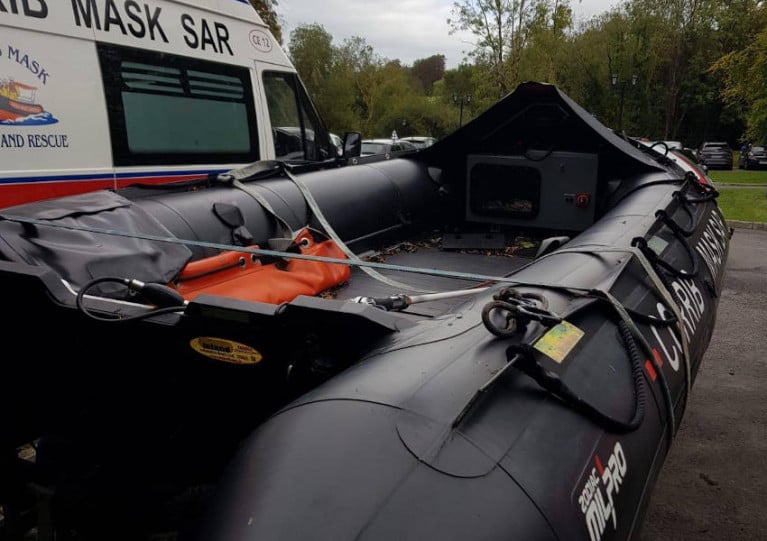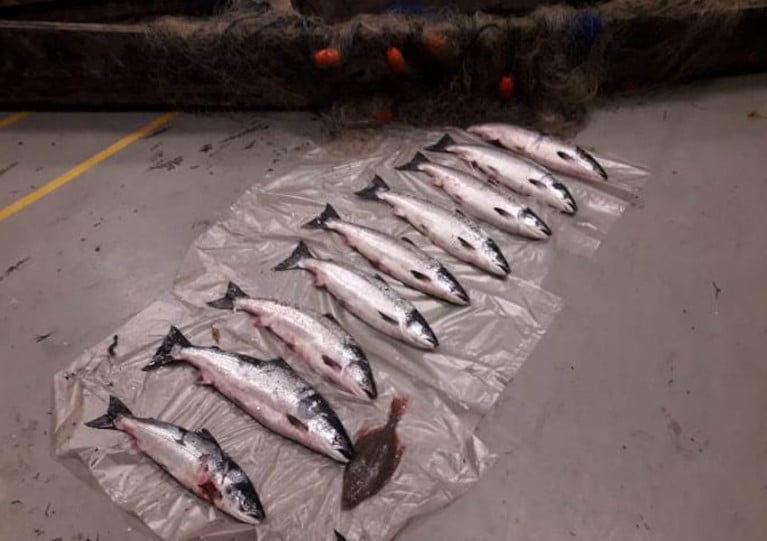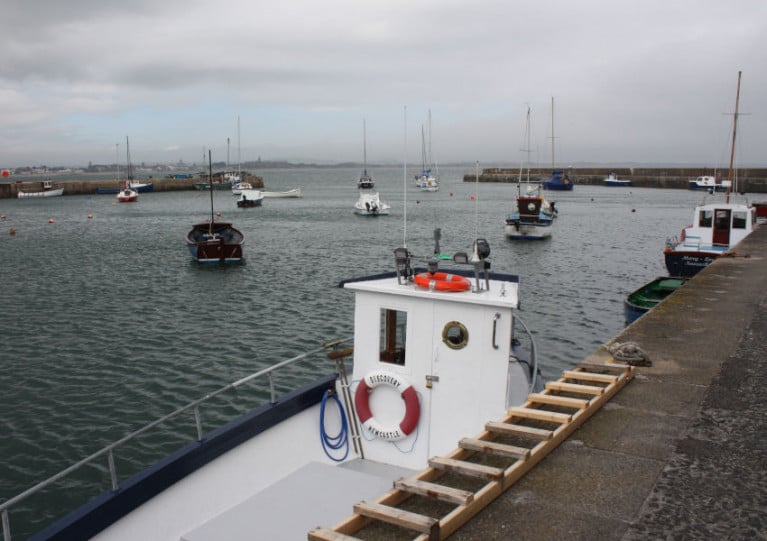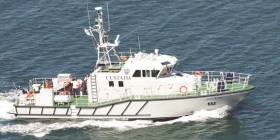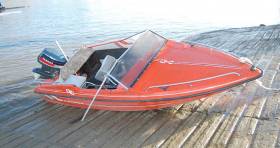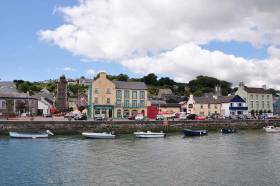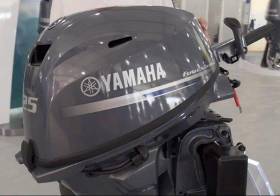Displaying items by tag: Crime
Appeal After Motor & GPS Stripped From Lough Corrib Rescue Boat
Corrib Mask Search and Rescue is appealing for any information after its newly acquired RIB was stripped of its motor and GPS equipment.
The Zodiac boat, which was stored in the Cong area, was targeted some time between Thursday (17 September) and yesterday (Saturday 19 September) and stripped it of its Yamaha outboard engine and GPS plotter — valued together at upwards of €10,000.
Anyone in the vicinity of Cong who may have seen or heard anything, or is aware of someone trying to sell the missing parts, is encouraged to contact Claremorris Garda Station at 094 937 2080 or the Garda Confidential line at 1800 250 025.
Warning Over Suspected New Scam Boat Sales Website
Scammers responsible for swindling prospective boat owners out of thousands of euro may have set up a new website to lure unsuspecting customers.
Afloat.ie previously reported on the “authorised push payment” fraud scheme, which employed bogus websites using credentials stolen from reputable businesses for ‘phantom’ boat sales to victims in the UK, Ireland and elsewhere.
While those sites are no longer online, a similar website — which appears to have been registered in April of this year, in the same period when the previous sites appeared — has been flagged by concerned boaters suspicious of its ‘too good to be true’ prices.
The ‘About’ section of this site, which is riddled with spelling mistakes, claims its operators have “8 years of experience in new & used boats” and are “one of the key players on the boat market also fishing boat , speed boat and yacht boat” (sic).
While one person taken in by the previous scam managed to stop his payment going through, others were not so lucky — with 12 Irish victims losing €83,000 between them. The Irish Times has more on the story HERE.
Firearm Discharged In Seizure Of Illegal Salmon Net On River Suir
A firearm was discharged by alleged offenders as fisheries officers responded to reports of an illegal net on the upper tidal River Suir late last month.
Nobody was injured in the incident as Inland Fisheries Ireland officers seized a boat, net and nine wild salmon near Carrick-on-Suir during a routine patrol on the night of Tuesday 28 July.
Gardai attended the scene and the matter is being investigated, the fisheries body adds.
IFI director David McInerney said: “The salmon caught by this illegal net were on the final leg of an arduous journey to reach their native spawning rivers.
“The fish were fresh in from the sea, having survived a journey from either the coastal waters off west Greenland or the Faroe Island, before being cruelly killed by an illegal net, a few miles from their final destination.
“It cannot be stressed enough that nobody should purchase wild salmon that does not carry either a green or white gill tag through the mouth and gill clearly displaying the name Inland Fisheries Ireland.
“I would like to highlight the dedication and courage demonstrated by the officers in tackling illegal fishing in the face of significant personal danger.”
Boat Vandals In Co Down Harbour ‘Putting Lives At Risk’
A spate of boat vandalism at Newcastle Harbour in Co Down is putting lives at risk, a former coastguard chief claims.
John Lowry told the Belfast Telegraph that a number of boats in the Northern Ireland harbour have been damaged and loosened from their moorings over recent weeks.
The latest incident saw fellow sailors recover a boat from a nearby beach in difficult weather.
“We’re calling for the council to put more procedures in place,” said Lowry. “Part of the harbour isn't lit up at night at all and the boat owners are calling for help.”
The Belfast Telegraph has more on the story HERE.
Prison ‘Highly Likely’ For Kinsale Outboard Motor Thieves, Judge Says
A judge at a Cork court has told two outboard motor thieves that the targeting of outboard engines for theft is a particularly disquieting crime, writes Tom MacSweeney.
At Cork Circuit Criminal Court, Judge Sean Ó Donnabháin refused to grant bail to the two men and remanded them in custody for sentencing on November 7.
He said that prison sentences were highly likely.
Giedrius Stoncius (30) and Giedrius Lukosius (33), both with addresses in Mallow, pleaded guilty to the charges of theft in Kinsale in February.
The court was told that the stolen property had been returned to the owners and money had been brought to the court to pay for damage.
The judge said that the methodology and extent of the offences suggested a professional organisation.
Gardaí had warned boat owners about thefts in February.
Coleraine Coastguard is back in business after a reported burglary at its station during Storm Gareth on Tuesday night (12 March).
Volunteers woke yesterday morning (Wednesday 13 March) to find that their station “had been broken into and ransacked”.
The North Coast station was taken offline while the PSNI completely investigations and volunteers could determine that its equipment was safe to use.
Volunteers were given the all-clear by 4.30pm yesterday to resume their rescue services.
And they have appealed for anyone with information about the burglary — one of a spate of incidents throughout the town on Tuesday night — to contact the PSNI.
Drug Smuggling Investigation Sees Three Arrested & Yacht Impounded
#Crime - Three men are in custody and their yacht impounded in Cork on suspicion of drug trafficking.
As RTÉ News reports, the Naval Service detained the vessel, which had sailed from South America, off the Kerry coast yesterday (Wednesday 12 September).
The boat is currently undergoing forensic examination in Kinsale, though it is understood that no drugs had been found as of this afternoon.
This incident comes a fortnight after the Naval Service was involved in the detention of a catamaran with a “significant quantity of cocaine” in the English Channel.
#Speedboat - A man has been sentenced to six years in prison for the manslaughter of a woman who died after his speedboat crashed in London three years agp.
According to The Guardian, Jack Shepherd (31) was absent from sentencing at the Old Bailey after skipping bail, and police currently have a warrant out for his arrest.
The jurors heard that in December 2015, Shepherd took his date Charlotte Brown (24) to his speedboat on the River Thames while both were under the influence of alcohol, and allowed her to drive the vessel at “full throttle”.
The boat crashed into a submerged log before capsizing and throwing both Shepherd and Brown into the river.
Brown showed symptoms of hypothermia and cardiac arrest when she was recovered from the water, and was pronounced dead later.
Neither Brown nor Shepherd was wearing a lifejacket, and Shepherd — who had previously been pulled over a number of times for speeding on the river — admitted in a police interview that he did not inform Brown, who had no boating experience, about the safety devices on board.
Police also said the speedboat itself had a number of defects, including a ‘wobble’ in its steering.
Mail Online has video recorded by Brown on her phone of part of the pair’s speedboat trip, in which she can be heard commenting that Shepherd was “going so fast”.
Judge Richard Marks QC, in his sentencing remarks, said Shepherd had a “totally cavalier attitude to safety”. The Guardian has more on the story HERE.
New Harbour Master Appointed For Youghal
Youghal in East Cork has been appointed its first full-time Harbour Master.
According to the East Cork Journal, the move is expected to boost Youghal as a destination for boating visitors in tandem with the new harbour pontoon.
Cork County Council advertised for the ‘full time and pensionable’ post last December, as previously reported on Afloat.ie.
The new Harbour Master, who is expected take up their role next month, will also have responsibility for the coastline to nearby Ballycotton.
The appointment comes on the heels of new council bye-laws that give Harbour Masters and proposed ‘harbour constables’ greater authority to deal with mooring fees, abandoned vessels and criminal activity.
Youghal has been the focus of a spate of outboard engine thefts in recent weeks.
The East Cork Journal has more on the story HERE.
Warning Over Outboard Engine Thefts In East Cork
#EngineThefts - Gardaí have warned boaters in East Cork over a spate of outboard engine thefts along the coast in recent weeks, as the Evening Echo reports.
Five of such engines have been reported stolen from vessels in Youghal and Lower Aghada the last three weeks alone — with the loot likely to be sold abroad on the black market.
The Evening Echo has more on the story HERE.



























